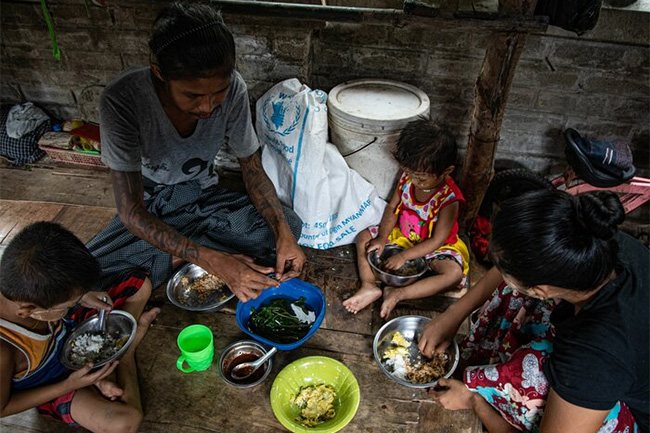Nearly four in ten households facing insufficient food consumption in Sri Lanka - WFP
September 20, 2022 07:18 pm
The World Food Program (WFP) says Sri Lankans are being forced to rely on coping strategies to keep food on the table.
In its “Remote Household Food Security Survey Brief” for August 2022, the UN’s food-assistance branch said around eight in ten households are regularly turning to food-based coping strategies such as sacrificing meals, borrowing food, and reducing the number of meals eaten.
It also noted that more than one-third of Sri Lanka’s population is food insecure amid the country’s worst economic crisis since its independence in 1948.
As per the brief, in July, nearly half of the population (49%) faced food insecurity, in what was a drastic hike from 28% in June. This came at the peak of political instability, high month-to-month food inflation, and intense fuel shortages, the WFP added.
The organization points out that diets are now in a precarious state in Sri Lanka, noting that at least four in ten households are facing insufficient food consumption, with many consuming far less diverse diets as food prices remain high across the country.
The crisis is wreaking disproportionate impacts across different segments of society, the WFP stressed. “This was seen across a range of divides – female-headed households are faring worse than male-headed households, while those in estate and urban areas are also faring worse than those in rural areas. Similar disparities can be found across education levels and income sources.”
The WFP warned that, in the face of inaction, the situation could deteriorate even further.
The upcoming months could see a combination of factors continue to exert pressure on food insecurity, including poor harvest forecasts of staple foods, import restrictions, and the ongoing economic crisis.
According to the WFP’s findings, overall acute food insecurity remains a concern, with 37% of the population now facing acute food insecurity (up from 28% in June).
The organization also revealed that seven out of nine provinces saw food insecurity worsen between June and August. In Uva and Central provinces in particular, nearly half of the population (47 and 46 percent respectively) is now facing food insecurity, with both provinces seeing a deterioration compared with June.
Food insecurity was especially high in July, coinciding with uncertainty during the peak of political instability, high month-to-month food inflation, and intense fuel shortages, the WFP added.
WFP-Remote Household Food S... by Adaderana Online














